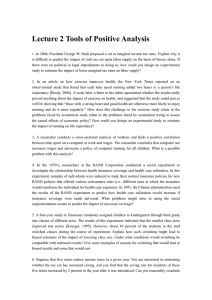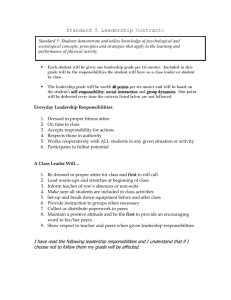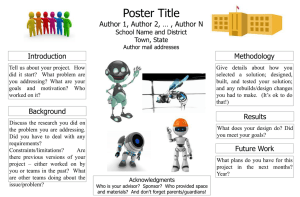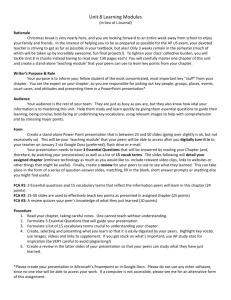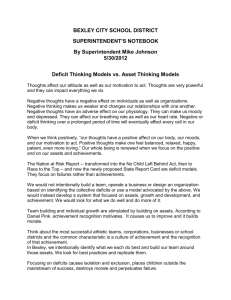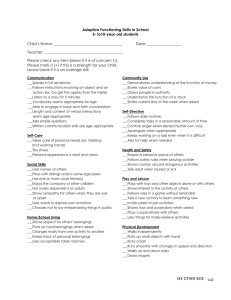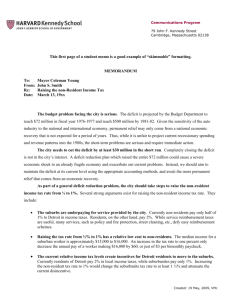7F-HO3-Teach-Behavior
advertisement
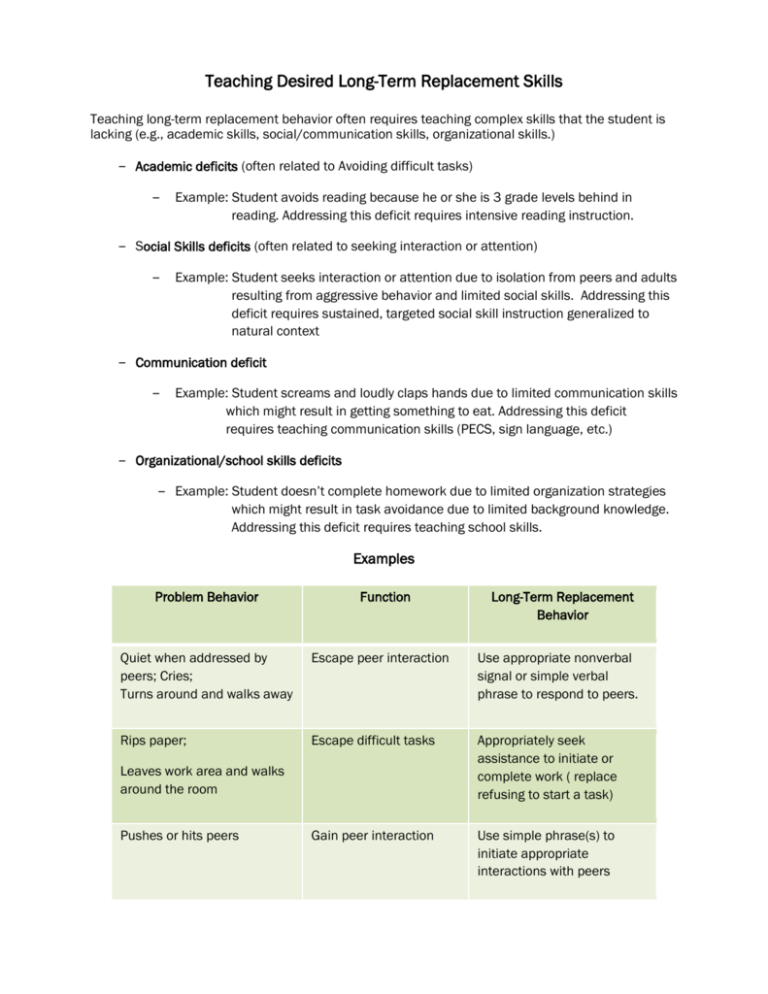
Teaching Desired Long-Term Replacement Skills Teaching long-term replacement behavior often requires teaching complex skills that the student is lacking (e.g., academic skills, social/communication skills, organizational skills.) ‒ Academic deficits (often related to Avoiding difficult tasks) ‒ Example: Student avoids reading because he or she is 3 grade levels behind in reading. Addressing this deficit requires intensive reading instruction. ‒ Social Skills deficits (often related to seeking interaction or attention) ‒ Example: Student seeks interaction or attention due to isolation from peers and adults resulting from aggressive behavior and limited social skills. Addressing this deficit requires sustained, targeted social skill instruction generalized to natural context ‒ Communication deficit ‒ Example: Student screams and loudly claps hands due to limited communication skills which might result in getting something to eat. Addressing this deficit requires teaching communication skills (PECS, sign language, etc.) ‒ Organizational/school skills deficits ‒ Example: Student doesn’t complete homework due to limited organization strategies which might result in task avoidance due to limited background knowledge. Addressing this deficit requires teaching school skills. Examples Problem Behavior Function Long-Term Replacement Behavior Quiet when addressed by peers; Cries; Turns around and walks away Escape peer interaction Use appropriate nonverbal signal or simple verbal phrase to respond to peers. Rips paper; Escape difficult tasks Appropriately seek assistance to initiate or complete work ( replace refusing to start a task) Gain peer interaction Use simple phrase(s) to initiate appropriate interactions with peers Leaves work area and walks around the room Pushes or hits peers
